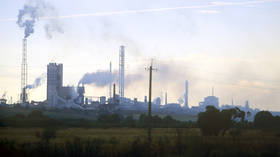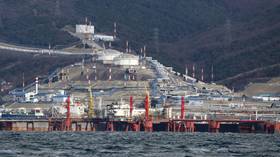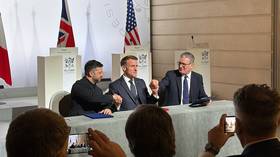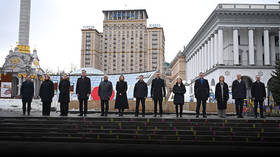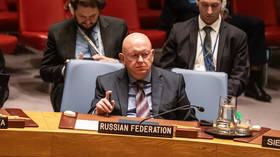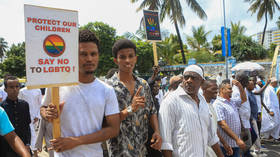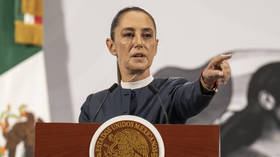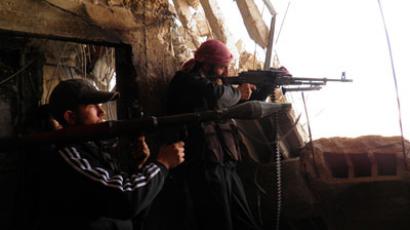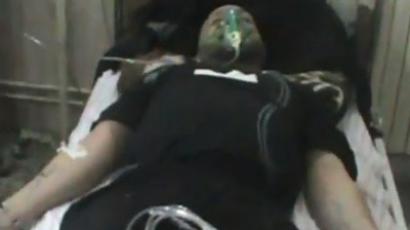Foreign powers send heavy weapons to 'moderate' Syrian rebels - report
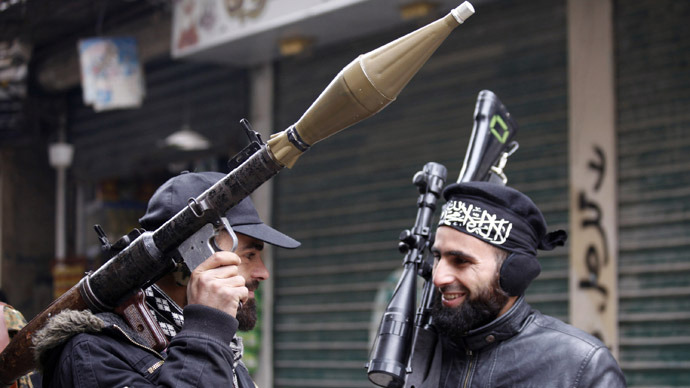
Outside powers have reportedly supplied heavy weapons to ‘moderate’ Free Syrian Army fighters, The Washington Post reports. Allegedly the arms have been delivered to Syria to counterweight radical Islamists high-jacking the rebel movement.
The armaments are said to include anti-tank weapons and
recoilless rifles and are thought to be the first such heavy
weapons have been supplied from outside since the uprising against
President Assad started two years ago, the newspaper
reports.
Its sources say the weapons have been delivered to FSA groups in
the Syrian province of Daraa in the south of the country across the
border with Jordan.
The Jordanian government denied any role.
The political and media coordinator for the Free Syrian Army,
Louay al-Mokdad, has reportedly confirmed that the rebels acquired
new weapons shipped from outside Syria, but he refused to disclose
who was behind the shipment.
Citing an unnamed official, the newspaper reports that the main
goal of the recent armament is to boost “more moderate groups
fighting in the south”, and thus to “counter the growing influence
of Islamist extremist groups in the north of Syria”.
According to one of the newspapers sources, shifting the focus
of the war away “from the north toward the south and the capital”
will make the fight against Assad more productive.
“Daraa and Damascus are the key fronts on the revolution, and
Damascus is where it is going to end,” WP quoted Saleh
al-Hamwi, coordinator of rebel units in Hama province in
west-central Syria.
“The idea was to get heavier stuff, intensify supply and make
sure it goes to the good guys,” the official to told the
Washington Post.
Intensifying supplies of heavy weaponry to “good guys” is
expected to weaken the Al-Nusra Front, a group of united Jihadist
militants that was created in January 2012. The Al-Nusra Front has
taken responsibility for a large number of slaughterous acts of
terror when cars stuffed with explosives exploded on the streets of
Syrian cities, causing numerous civilian casualties.
“If you want to weaken Al-Nusra, you do it not by withholding
[weapons] but by boosting the other groups,” he added.
Concerns that foreign arms aid goes to ‘incorrect consignee’
were raised earlier this year when it turned out that the supplies
ended up in the hands of radical Islamist groups.
Back in October the New York Times revealed classified US
assessments of the conflict that said that most of the weapons go
to jihadists rather than to secular-minded groups, which the West
wants to seize power in the country.
The situation was extremely distressing for the US officials who
worried that in case the conflict ends with the ousting of Assad,
the better-armed extremist groups were likely to fill in the power
vacuum. This at the same time would mean an Islamist Syria hostile
to the US in the future.
Over the last year it have allegedly been Saudi Arabia and Qatar
which were most often mentioned in connection with supplying
weapons to Syrian rebels. These countries reportedly used the
territory of Turkey to deliver
arms and ammunition across Syria’s northern border. The
arms
supplies were reportedly executed under full control of the
American special services, as NYT revealed earlier. However the US
insists it refrained from direct shipping of weapons to the Syrian
rebels, limiting its actual help to providing intelligence
assistance.
With all the efforts from the international community to help
end the long-lasting military conflict in Syria, the civil war
still seems to be far from being over. Though Bashar Assad has
recently suggested peaceful dialog, something that the
international community has been calling for more than a year, the
Syrian National Coalition refuse to talk and discuss possible
solutions of the crisis, not only with the regime, but with the
international community. A representative for the rebel fighters
said they would not attend a meeting in Rome or talks in Russia and
the US. Meanwhile, a number of casualties continues to grow in
Syria. According to the recent estimates from the UN, the war has
claimed the lives of nearly 70,000 people since March 2011, when
the conflict began.



